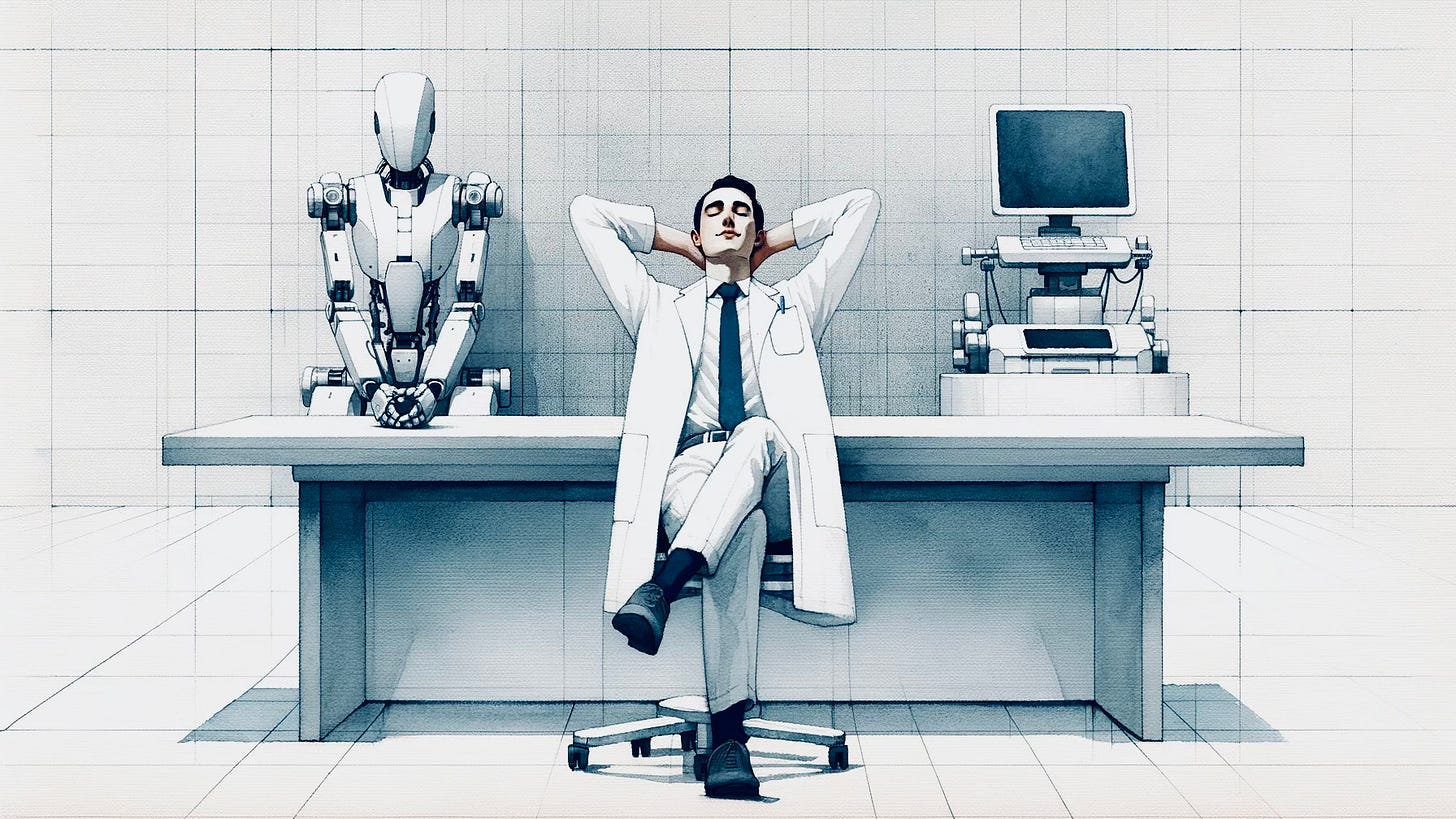What makes doctors dispensable?
If what you do as a physician is easy, you should be concerned
There’s a lot of anxiety among doctors about things like artificial intelligence and automation. You don’t have to look far to find stories and discussions about doctors being replaced. So should we be concerned? Are doctors really dispensable?
Here’s a thought: If what you do as a physician is easy, maybe you should be nervous. Because…
Rote transactional care can be done by advanced practitioners.
Identifying patterns is ripe for artificial intelligence.
Repetitive things can be automated.
Machine learning is getting better at putting basic clinical stories together.
Our biggest opportunity is with the hard human stuff that sits in between. The things that machines struggle with and can only mimic. Things like nuance, ambiguity, abstraction and big picture thinking. Acting as the human interface between patients and technology represents a unique opportunity for doctors as well.
The things that make medicine easy are the things that make doctors dispensable.
What will make the next generation of doctors dispensable in the next 25 years? And maybe we should start to ask, what makes a doctor indispensable?
Image via DALL-E




Doctors are anxious with being replaced only because medical education worked TOO well and the idea of ‘you know nothing’ is engrained that deep in most doctors.
I trained outside the US and I practice medicine in the US, so I feel I speak with some authority when I say the following: A dog can get better medical care in the US than a human being. APPs have made physicians indispensable. Minimum 30% of patients I see in the ER, clinic, or a specialist office are there thanks to APPs mismanaging a patient. Don’t get me started on inpatient consults.
Our hospital recently switched to APPs staffing admissions. Consults literally TRIPLED overnight. Doctors are paid an arm and a leg in the US and it’ll only go up. What happened to radiology salaries as APPs were allowed to slam on the imaging button is happening to more cognitive specialties slowly but surely as well.
AI and extenders approach patients with a defined narrow context or task and a defined narrow skill set. There are hidden opportunity losses to automating these processes. Over the course of years, some of my most life changing interventions have come from observing patients as they chat with me or as they move into the room and exam chair or from exploring off hand comments or complaints made as asides deemed not relevant by the patient, not elicited by history takers but allowing me to put together the diagnosis or raise an issue which may have nothing to do with the intended exam or chief complaint. Sometimes these are life saving/changing. A Conversation from the observation of ETOH OB, an early diagnosis of Parkinson’s disease, a rash that signals systemic disease, blue lips on someone presenting for a routine exam denying pain or SOB who should really be in an ER for their subacute MI…
In fact I worry most about unidentified emergent conditions that are unrecognized by regular folks, but are seen by well trained physicians regardless of their specialty or patient context. Emmanuel’s comment attests to this.